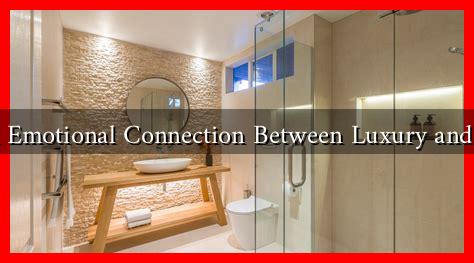-
Table of Contents
Is There an Emotional Connection Between Luxury and Simplicity?
In a world increasingly defined by consumerism and complexity, the juxtaposition of luxury and simplicity has become a focal point of discussion. While luxury is often associated with opulence, extravagance, and excess, simplicity evokes feelings of minimalism, clarity, and ease. This article explores the emotional connection between these two seemingly opposing concepts, examining how they can coexist and even enhance one another in the modern consumer landscape.
The Essence of Luxury
Luxury is not merely about high price tags or exclusive brands; it embodies a sense of quality, craftsmanship, and experience. According to a report by Bain & Company, the global luxury market was valued at approximately €281 billion in 2019, with a projected growth rate of 3-5% annually. This growth is driven by a shift in consumer preferences towards experiences over possessions, indicating a deeper emotional connection to luxury.
The Allure of Simplicity
Simplicity, on the other hand, is often celebrated for its ability to declutter our lives and minds. The minimalist movement has gained traction in recent years, with advocates like Marie Kondo promoting the idea that less is more. A study published in the Journal of Consumer Research found that consumers often feel more satisfied with their purchases when they are simple and straightforward, as opposed to complex and overwhelming.
Finding Common Ground
At first glance, luxury and simplicity may appear to be at odds. However, they can create a powerful emotional connection when combined effectively. Here are some ways in which luxury and simplicity intersect:
- Quality Over Quantity: Luxury brands are increasingly focusing on quality rather than quantity. For instance, brands like Hermès and Chanel emphasize timeless designs that transcend trends, appealing to consumers who value simplicity in their choices.
- Mindful Consumption: The rise of conscious consumerism has led many luxury brands to adopt sustainable practices. For example, Stella McCartney is known for her commitment to eco-friendly materials, marrying luxury with a simple, ethical approach.
- Experiential Luxury: Consumers are gravitating towards experiences that offer emotional fulfillment rather than material possessions. High-end travel companies like Aman Resorts provide luxurious yet simple experiences that allow guests to connect with nature and themselves.
Case Studies: Brands That Embrace Both
Several brands have successfully integrated luxury and simplicity into their identities:
- Apple: Known for its sleek designs and user-friendly interfaces, Apple has positioned itself as a luxury brand in the tech industry. Its products are simple to use yet exude a sense of sophistication and exclusivity.
- Muji: This Japanese retailer epitomizes the concept of “no-brand” luxury. Muji offers high-quality, minimalist products that focus on functionality and simplicity, appealing to consumers who appreciate understated elegance.
- Rimowa: The luxury luggage brand combines high-quality materials with a minimalist aesthetic. Rimowa’s products are designed for travelers who value both style and practicality, showcasing how luxury can be simple.
The Emotional Connection
The emotional connection between luxury and simplicity can be attributed to several factors:
- Stress Reduction: In a fast-paced world, simplicity can provide a sense of calm. Luxury items that embody simplicity can evoke feelings of relaxation and contentment.
- Identity and Status: Owning luxury items that are simple and timeless can enhance one’s identity and social status, allowing individuals to express their values without the clutter of excess.
- Authenticity: Consumers are increasingly seeking authenticity in their purchases. Brands that prioritize simplicity often resonate more deeply with consumers, fostering loyalty and emotional attachment.
Conclusion
The emotional connection between luxury and simplicity is a nuanced and evolving relationship. As consumers continue to seek meaningful experiences and mindful consumption, the intersection of these two concepts will likely become more pronounced. Brands that successfully blend luxury with simplicity not only cater to the desires of modern consumers but also create lasting emotional connections that transcend mere transactions. In a world where complexity often reigns, the allure of simple luxury offers a refreshing perspective on what it means to indulge.
For further insights into the evolving landscape of luxury and simplicity, you can explore resources like Bain & Company’s Luxury Goods Worldwide Market Report.


